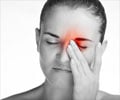Hormone therapy may be used in treating migraine without posing an increased risk of heart disease. It may also help prevent bone loss.
- Hormone therapy does not increase the risk of heart disease.
- It helps in treating menopause symptoms.
- It also helps in prevention of bone loss.
"Hormone therapy use has been on the decline since the WHI clinical trials. Newer data has brought further clarity to its safe use, especially in younger women (age < 60) who are closer to the time of menopause (within 10 years of menopause)," says Dr. Peter F. Schnatz, immediate past president of NAMS and one of the study's authors. "Based on this newer data, hormones still have a major role in treating menopause symptoms and preventing bone loss. A number of these women will have migraines. Hence, knowing the risk/benefit profile of hormone therapy in these women is critically important."
There have been few studies demonstrating the effect of hormone therapy on migraines and subsequent cardiovascular disease. Hormones have often not been prescribed for migraine sufferers because of the association between exogenous estrogen use and an increased risk of stroke in women who have migraines. This led to the recommendation that combined oral contraceptives (better known as birth control pills) should be used cautiously or avoided entirely in women with a history of migraines, depending on whether or not the migraines were accompanied by an aura.
Migraine and Cardiovascular Diseases
Data for 67,903 participants of the WHI clinical trials were analyzed to further examine the relationship between migraines and cardiovascular disease events and their interaction with hormone therapy use. It was discovered that women with migraines tended to drink and exercise less than those without migraines and had higher vitamin D and calcium intake. Migraine sufferers were also more likely to have night sweats and hot flashes. Importantly, researchers did not detect a significant risk of cardiovascular disease events associated with a history of migraines. Most significantly, from the treatment safety perspective, there was no impact from hormone therapy on this relationship.
"Since migraines affect one in every four women and women with migraines are often advised to avoid hormone therapy, these findings may have significant public health implications," says Dr. Jelena Pavlovic, lead author of the study from Albert Einstein College of Medicine in the Bronx.
"We know that changes in estrogen lead to migraines for many women. Yet, there has been very little research focused on migraines through the menopause transition when estrogen levels can fluctuate greatly," says Dr. JoAnn Pinkerton, NAMS executive director. "This study clearly demonstrates the need for more research in this area so symptomatic women can benefit from proven therapies."
References:
- Pavlovic et al, Please Don’t Give Hormone Therapy a D Recommendation or State That “Harms Far Outweigh Benefits For Prevention Of Chronic Disease” The Journal of the North American Menopause Societyhttp://journals.lww.com/menopausejournal/Citation/2017/10000/Please_don_t_give_hormone_therapy_a_D.1.aspx
















